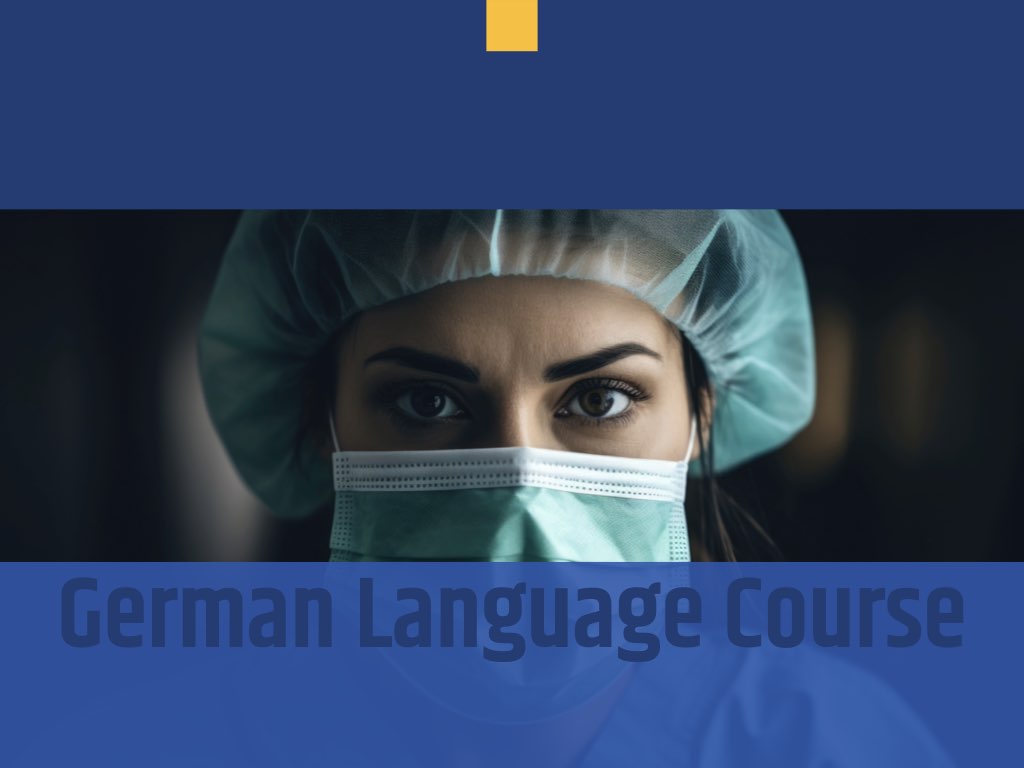A German language course at the C1/C2 level for medical doctors focuses on the specific language skills and professional vocabulary required in the medical sector. The course prepares foreign doctors to work confidently and professionally in a German-speaking clinical environment. Here are the main contents of such a course:
The main focus is on conducting medical history interviews with patients, providing information and advice, communicating with colleagues, nursing staff, and other specialists, as well as documenting patient conversations and medical findings.
Specialized Vocabulary and Grammar
Your vocabulary will include medical terminology (anatomy, diagnoses, illnesses), specialized terms for treatment methods and procedures, medications and their uses, and technical terms for medical devices and aids.
Grammatically, the course covers the use of passive voice in medical reports, Konjunktiv I and II for reported speech and hypotheses, nominalizations and compound words for precise expression, and complex sentence structures (relative clauses, infinitive clauses, participial constructions).
Academic and Professional Skills
You will learn to read and interpret medical literature and articles, analyze studies and research findings, and understand package inserts, medical instructions, and protocols. The course also teaches you how to use medical databases and online resources.
In terms of writing, you will practice drafting reports, expert opinions, referrals, and medical letters. You will also learn to document treatment progress and patient files, and to write scientific papers and publications in a medical context.
Practical skills are trained through simulated patient conversations, case studies, role-playing for emergency situations, and practicing interviews for examinations and diagnoses. The course also includes feedback and independent self-reflection for continuous improvement.
Intercultural Competence and Law
You will also gain intercultural competence, which includes understanding cultural differences in patient communication, handling misunderstandings in a medical context, and becoming sensitive to the specific needs and expectations of patients from different backgrounds.
The course covers giving lectures and medical presentations, participating in professional development courses, training sessions, and conferences, and using audio and video materials in daily clinical work and for further education.
Important topics also include medical legal terms (patient rights, confidentiality), ethics in medicine (informed consent, caring for the dying), documentation, and data protection in patient files.
The preparation for exams is comprehensive, covering exam situations and strategies for both oral and written parts of the specialized language exam at the Medical Association.
A German C1/C2 course for doctors is designed to ensure they can communicate at a high professional level and master the linguistic challenges of everyday medical work in Germany.


